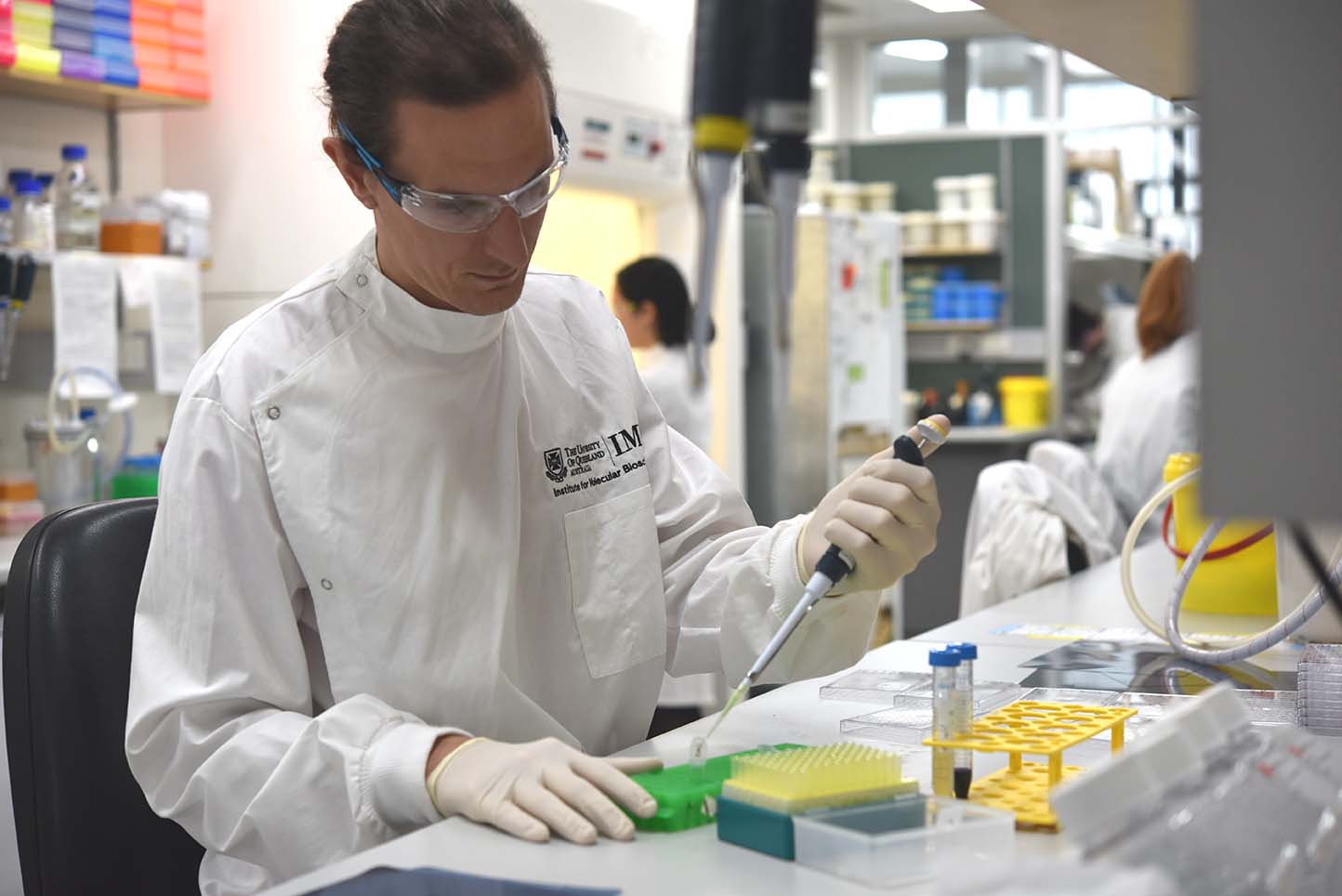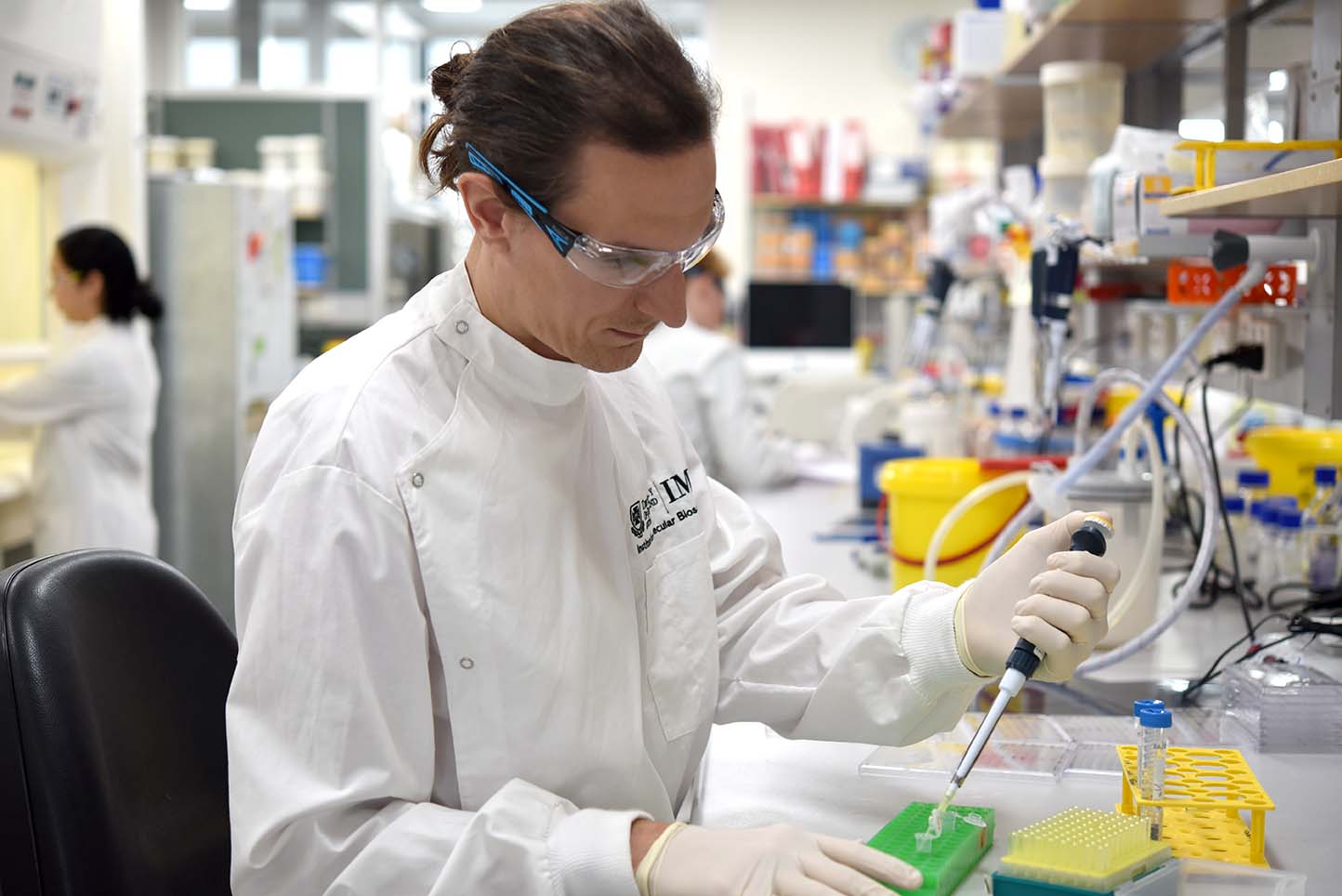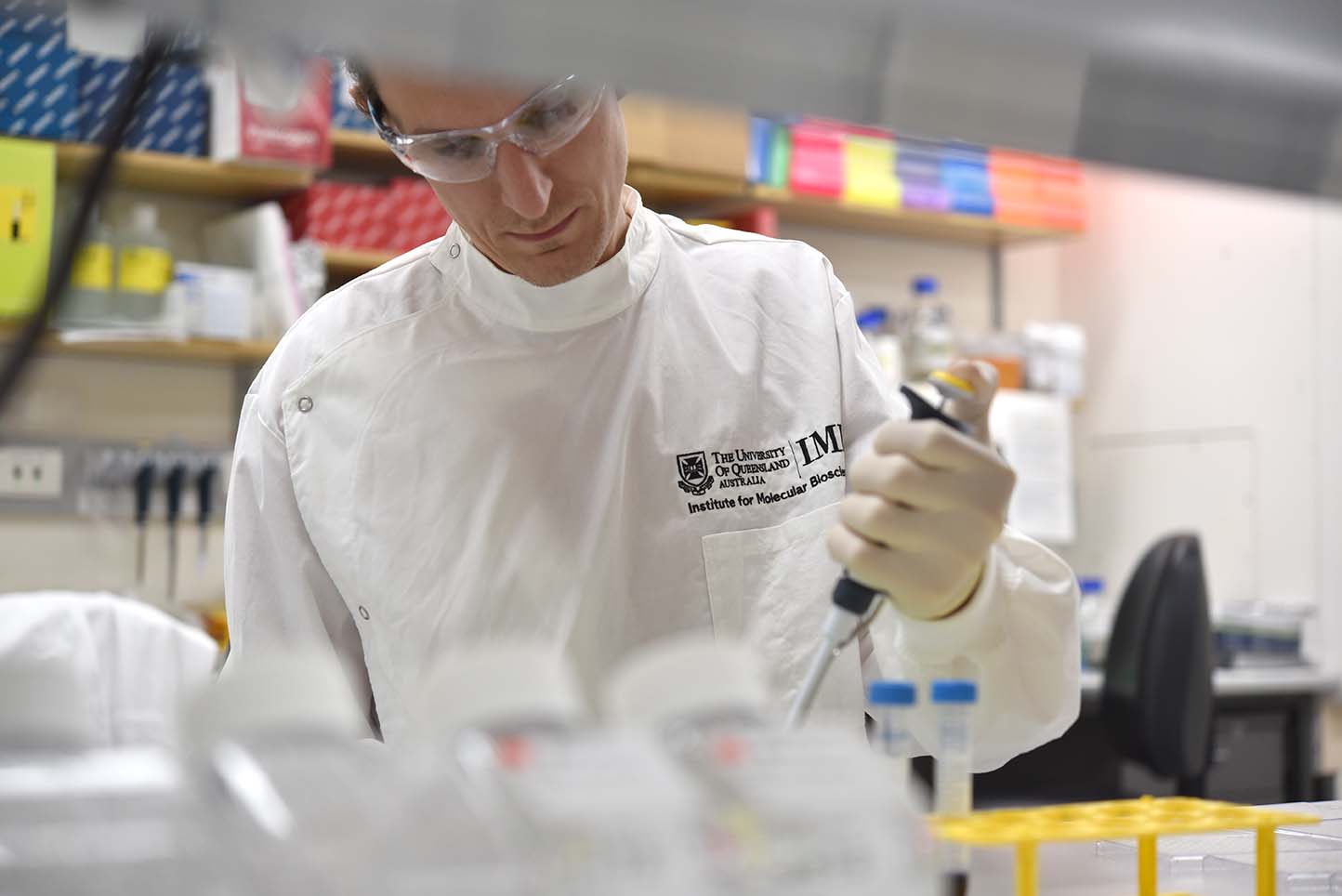Dr Stefan Emming
Dr Stefan Emming
he, him
Postdoctoral Research Fellow
Inflammasome Lab
Stefan has a long-standing interest in trying to understand cellular processes at a detailed molecular level. He did his Master in Biochemistry in a Structural Biology lab, investigating the structure and function of the intracellular innate immune sensors AIM2 and STING. Following a short period at the Biozentrum in Basel (Switzerland), Stefan joined the Molecular Immunology lab of S. Monticelli at the Institute for Research in Biomedicine (Bellinzona, Switzerland) to conduct a PhD. After a deep dive into transcriptional and post-transcriptional regulation of gene expression in T cells during his PhD, Stefan joined the Inflammasome Lab in 2019 as a Postdoc. His research is focused on the multi-step mechanism of inflammasome activation and its regulation on a molecular level.
"A scientist in his laboratory is not only a technician: he is also a child placed before natural phenomena which impress him like a fairy tale.”
Marie Curie
CONTACTS AND LINKS
Email: s.emming@uq.edu.au
Office Telephone: +61 7 3346 2076
Institute for Molecular Bioscience
AWARDS AND PUBLICATIONS
AWARDS, GRANTS AND PRIZES
2018 World Immune Regulation Meeting XII, Davos, Switzerland. EFIS-EJI Travel grant, BioLegend Best Presentation Award of Workshop “Systems biology”
EDUCATION
2019 PhD in Immunology, Institute for Research in Biomedicine, Bellinzona, Switzerland.
2012 Master of Science in Biochemistry, Ludwig-Maximilians-University Munich, Germany.
2009 Bachelor of Science in Life Sciences, University of Konstance, Germany.
Emming S, Schroder K (2019).
Tiered DNA sensors for escalating responses. Science Sep 27;365(6460):1375-1376. Pubmed
Find also:
Summary from Science, Reprint from Science, and Full text from Science
Emming S, Bianchi N, Polletti S, Balestrieri C, Leoni C, Montagner S, Chirichella M, Delaleu N, Natoli G, Monticelli S. (2020).
A molecular network regulating the proinflammatory phenotype of human memory T lymphocytes. Nature Immunology Apr;21(4):388-399 doi: 10.1038/s41590-020-0622-8. Pubmed
Bianchi N, Emming S, Zecca C, Monticelli S. (2020).
Vitamin D and IFN-β Modulate the Inflammatory Gene Expression Program of Primary Human T Lymphocytes. Frontiers in Immunology Dec 4;11:566781. doi: 10.3389/fimmu.2020.566781. Pubmed
Sacco R, Emming S, Gobbi C, Zecca C, Monticelli S. (2020).
Rebound of disease activity after fingolimod withdrawal: Immunological and gene expression profiling. Multiple Sclerosis and Related Disorders May;40:101927. doi: 10.1016/j.msard.2020.101927. Pubmed
Emming S, Chirichella M, Monticelli S. (2018).
MicroRNAs as modulators of T cell functions in cancer. Cancer Letters Aug 28;430:172-178. Pubmed
Montagner S, Leoni C, Emming S, Della Chiara G, Balestrieri C, Barozzi I, Piccolo V, Togher S, Ko M, Rao A, Natoli G, Monticelli S. (2016).
TET2 Regulates Mast Cell Differentiation and Proliferation through Catalytic and Non-catalytic Activities. Cell Reports May 17;15(7):1566-1579. Pubmed
Leoni C, Vincenzetti L, Emming S, Monticelli S. (2015).
Epigenetics of T lymphocytes in health and disease. Swiss Medical Weekly Oct 23;145:w14191. Pubmed
Copyright © 2017 - The University of Queensland



